Homelessness and addiction often go hand in hand, Joey Rubio said. He would know.
He spent years without a roof over his head, living in canyons and using drugs. He spent decades behind bars.
But that’s behind him now.
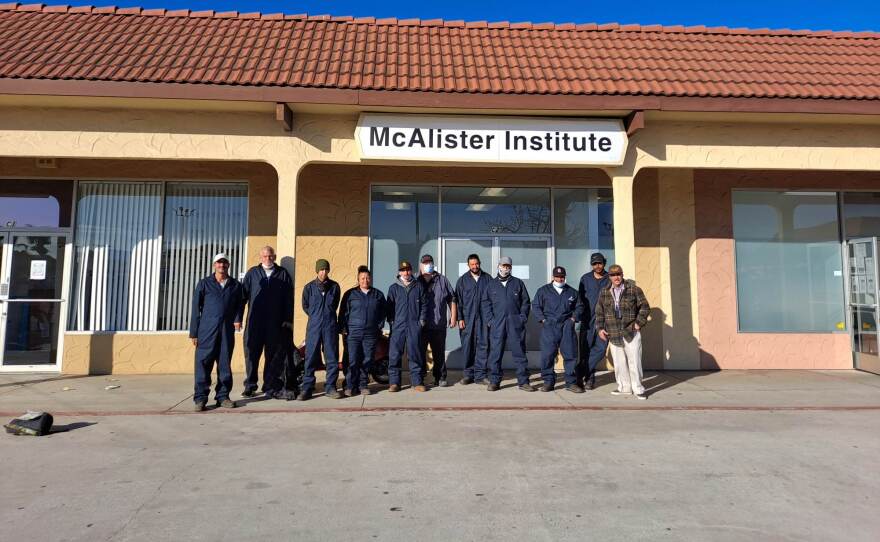
Rubio has been sober for seven years and works for the nonprofit McAlister Institute for Treatment and Education in Chula Vista.
“We have a kitchen, we have food. And we have a morning meditation here. We have NA meetings, AA meetings. This is where a lot of the stuff happens,” Rubio said while giving a tour of McAlister’s South Bay facility.
Rubio said an “ugly childhood” led him down a dark path — he was selling and using heroin by the age of 10.
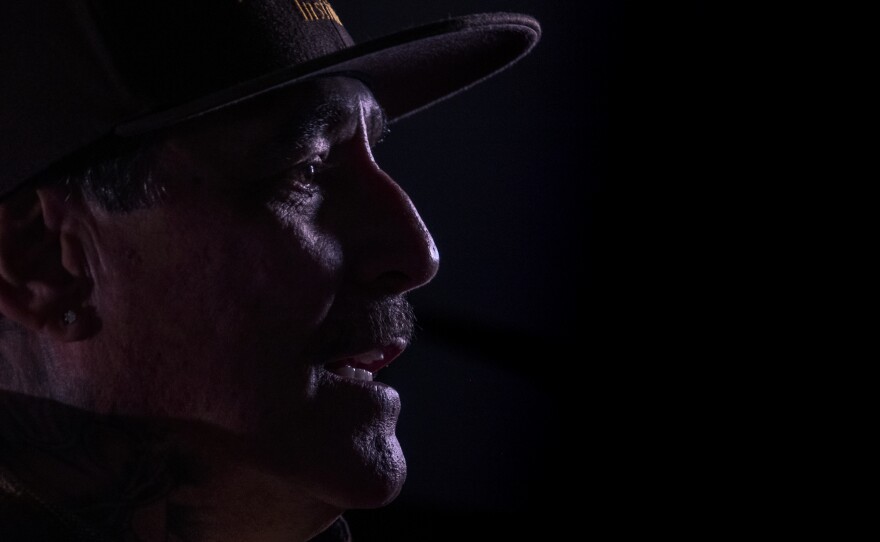
He’s 63 now, and along with getting sober he got certified as a drug and alcohol counselor. Now, Rubio's a role model for others.
“Basically what I try to teach these guys is life skills. How to be responsible at your job, how to keep a job, how to do resumes — all that stuff. Because I didn't know how to do any of that myself,” he said.
Rubio supervises a program called Work for Hope and there’s nothing else quite like it in the county.

It's a partnership with police, park rangers and the city of Chula Vista. Since 2018 it’s been paying homeless individuals to beautify local parks.
Not only has it worked, but it's also saved the city tens of thousands of dollars. Robert McLean has been in the program for two months.
“You know it helps you save money and get back (reintegrated) into society. And plus you're giving back to the city too, which is a good thing,” he said.

Diana Villarreal is also improving Chula Vista’s parks as part of Work for Hope.
The mother of seven said it's more effective than other rehabilitation programs she’s tried, because Rubio can relate to her.
“Him knowing where I come from, and involved in the same similar lifestyle as I grew up. He was really understanding. He really knew what it's like to get back on your feet,” Villarreal said.
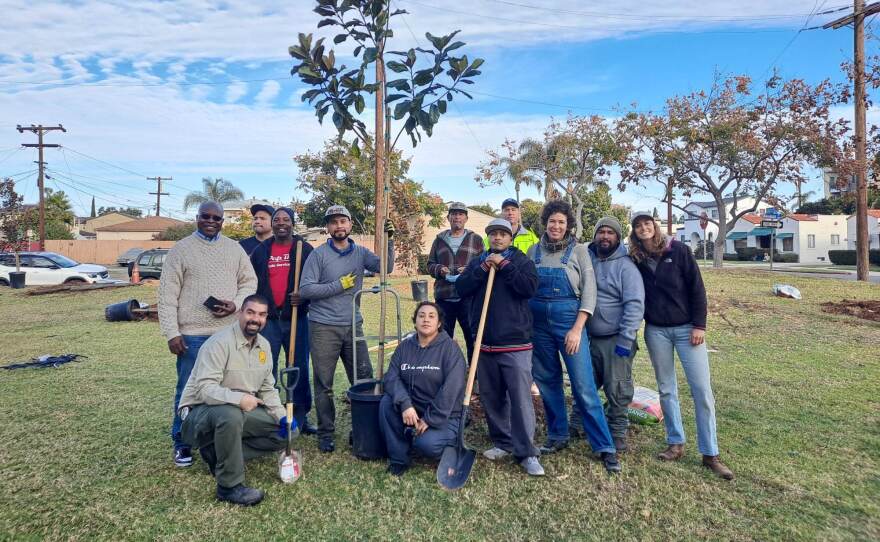
McLean said Work for Hope has given him purpose.
It helped him find sobriety, housing and a life that didn’t seem possible, or forever lost.
“It opens up doors for work. Like for myself I just got hired in another program – which is pretty good. I'll be working for Petco Park. And this program kept me focused man, and say ‘get up early in the morning, come to work.’ (It let me) get back into a routine,” McLean said.
While the results are evident in people like McLean and Villarreal, getting people to take part in the program isn't always easy.
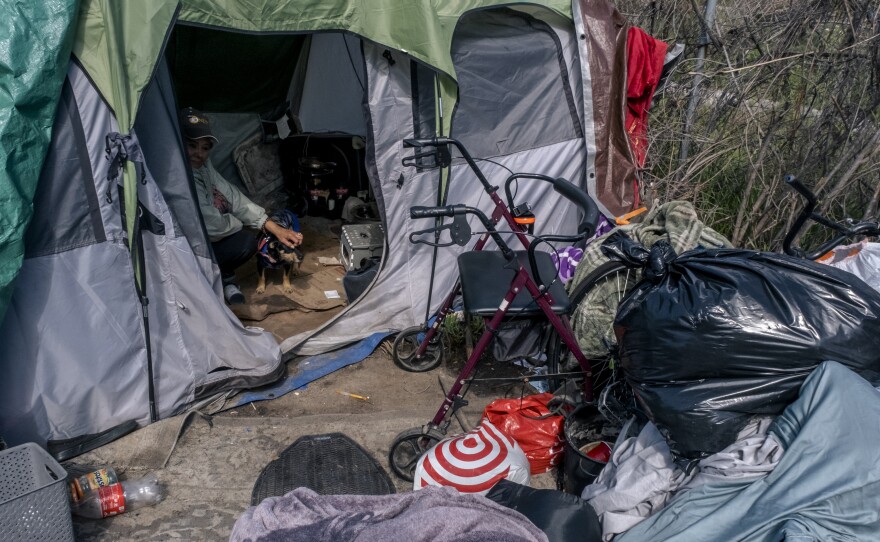
Rubio’s outreach work happens in canyons, parks, on the streets and in one infamous area called "the jungle."
That’s where hundreds of people live in the brush near the 805 and 54 freeways — including Rosie, who said she's ready for help.
“I have no place to go since my mom died. That's why I have to come (here). Now I want to get out of here because there's a lot of drama here,” she told Rubio.
He responded with empathy.
“I know that Rosie, and I want to help you. That's why I keep coming back,” Rubio said.
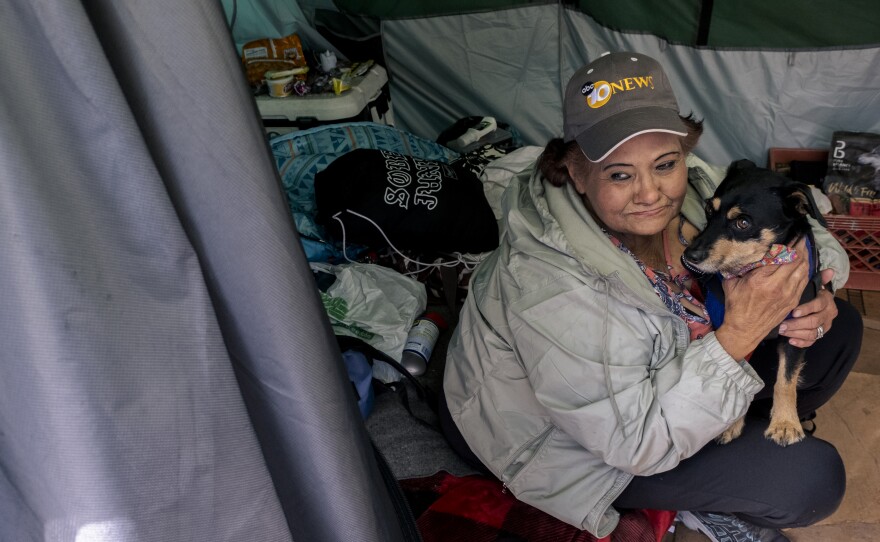
The Work for Hope supervisor said he gains the trust of people he meets over time, with consistent contact. Rubio adds that the relationships he builds help people accept the services they need.
He's hoping that's what happens with Gabriel, who also lives in the outskirts of “the jungle.”
“What I want you to do is come see me brother. And we’ll help you get off the streets,” Rubio said to Gabriel. “We have showers there, we have washing machines — you can wash your (clothes) — that type of stuff. And we'll work on a plan to get you off the streets and stay off the streets, get you a real good job making more money than I'm making.”
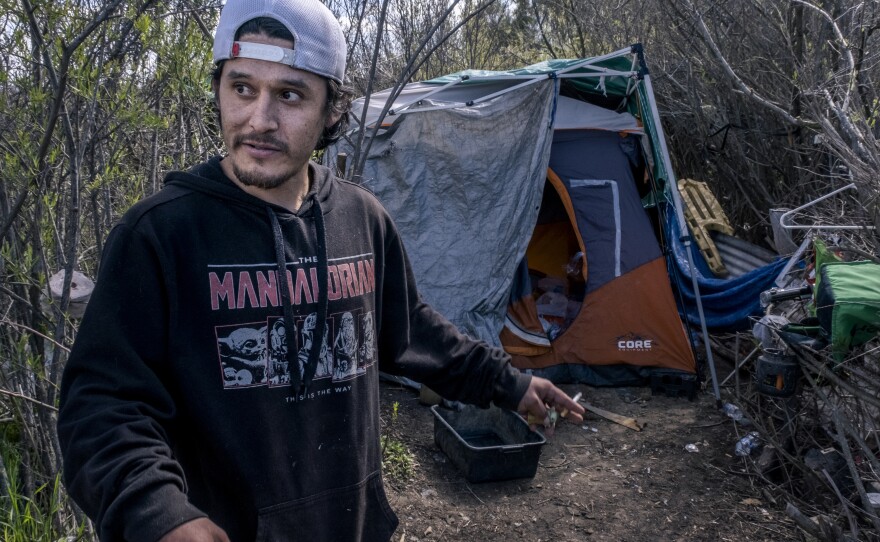
Villarreal said the Work for Hope model should extend beyond Chula Vista.
“San Diego’s lagging because if there were more programs like this, there'd be more homelessness off the streets. They'd be in sober living environments,” Villarreal said. “They’d have that light at the end of the tunnel, they’d boost themselves up. They wouldn't be in their tents or where they're at.”
Rubio said the numbers speak for themselves.
“For the fiscal year over 200 people and we're not even done: Off the streets, employable, housed, reunified with their families, with their children – single parents. We're making an impact here,” he said.

Rubio said there’s a need for more people like himself in homeless outreach and addiction counseling.
“I just wish more people would get involved. We have a fentanyl pandemic. We have homelessness all over San Diego, LA County — all over. Homelessness is everywhere and I want to address those people and help those people out,” he said.
Rubio has big dreams to expand his team’s efforts to beautify other parts of the county, and California, and get more people permanently off of the streets. But it costs money to do that.

His organization is running out of financial resources and actively applying for grant funding. Their goal is to raise at least $1 million, which Rubio said would keep Work for Hope running for nearly a decade.
“This works. Get the homeless people off the streets, getting them into treatment. Putting them to work beautifying your city. This program could go very far but I just need more funding,” he said.
Rubio said that anyone in San Diego County in need of homelessness or addiction help can call his personal phone number: 619-933-5139.






